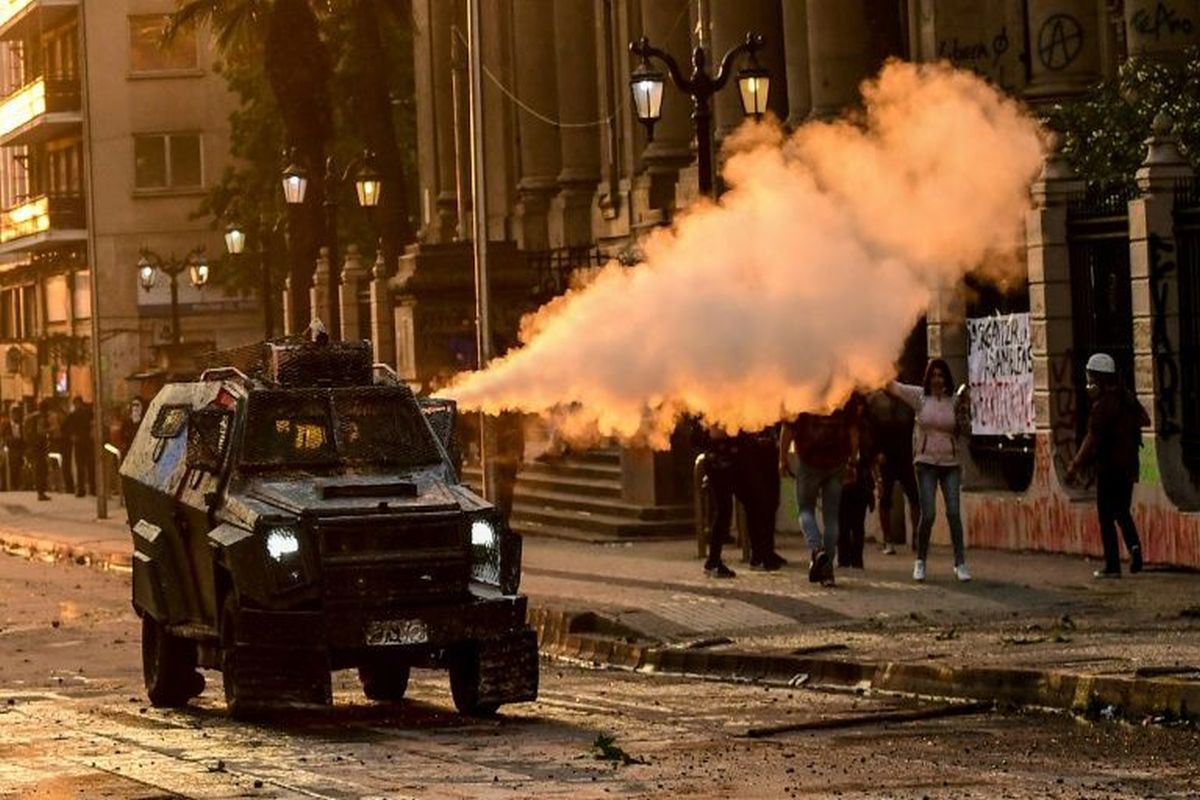Bijay Chhetri first Indian to sign with Latin American Colon Futbol Club
Colon Futbol Club is a 116-year-old professional football club based in Montevideo and currently competing in the second division of Uruguay.
The Plaza Italia, the ground zero of the protests and renamed by the protesters as “Plaza Dignidad” (Square of Dignity), once again became the epicentre of a large gathering.

Chile protests (Photo: AFP)
Thousands of protesters on Monday took to the street across Chile to mark the first anniversary of the most serious civil unrest in the country and show their distrust of both the social agenda announced by the government and the parliamentary agreement on a new constitution.
The Plaza Italia, the ground zero of the protests and renamed by the protesters as “Plaza Dignidad” (Square of Dignity), once again became the epicentre of a large gathering.
President Sebastian Pinera has announced a series of social measures in parliament at the beginning of the crisis, saying, “In the last four weeks, Chile changed; the Chileans changed, the government changed; we all have changed. The social pact under which we had lived broke down”.
Advertisement
The President also praised the agreement reached by parliamentary forces on November 15 to convene a plebiscite in April 2020 so that citizens can decide if they want a new constitution and which body should write it. He also acknowledged for the first time that there have been abuses and excessive use of force by security forces, which he promised to sanction.
Earlier in the month, Pinera had announced plans for a dialogue with the citizenry, but the protesters show little interest in talking with the government.
In Santiago, more than thousands gathered in the main Plaza Italia square, with some attempting to make their way to the heavily cordoned presidential palace and engaging in clashes with riot police.
Violent clashes between demonstrators and security forces broke out only hours after Pinera announced a cabinet reshuffle.
In October, Foreign Minister Teodoro Ribera had said that the Chilean government would ask the UN to send human rights observers to monitor the nationwide protests.
Meanwhile, the Inter-American Commission on Human Rights (IACHR), an autonomous body of the Organization of American States, began a multi-day visit to the country on Monday to investigate hundreds of complaints of abuse, torture, sexual violence and homicides by the security forces.
The IACHR joins other organizations on the ground, such as Human Right Watch and the UN.
(With inputs from agency)
Advertisement